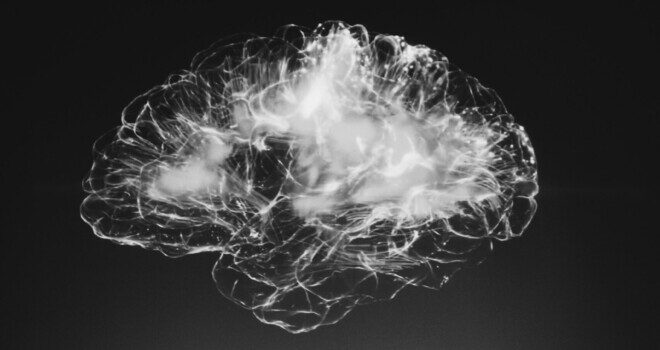The idea of using neurological criteria to determine the death of a patient has been an area of controversy for some time. Its use has heavy implications for health care decisions, especially regarding organ donation. In Evangelium Vitae, Pope St. John Paul II wrote that organ donation was praiseworthy when “performed in an ethically acceptable manner.” That last phrase is what complicates the question of using brain death as the criteria for death. In short, the act of procuring the organs from a patient cannot cause the death of the patient. As such, if our definition of brain death is inadequate, and patients meeting the stated criteria are alive, procuring their organs for transplant causes their death.
The current criteria for determining brain death come from the Uniform Determination of Death Act, drafted by the National Conference of Commissioners on Uniform State Laws in 1980. The act stated,
“An individual who has sustained either (1) irreversible cessation of circulatory and respiratory functions, or (2) irreversible cessation of all functions of the entire brain, including the brain stem, is dead. A determination of death must be made in accordance with accepted medical standards.”
Several states swiftly adopted the act, though dissent existed and continues to exist. However, the discussion was reinvigorated after proposals to revise the act and change the criteria began to circulate. One such proposal recommended that “rather than require ‘irreversible cessation of all functions of the entire brain, including the brainstem,’ the UDDA should instead require ‘brain injury leading to permanent loss of (a) the capacity for consciousness, (b) the ability to breathe spontaneously, and (c) brainstem reflexes.’”
The difference here may seem slight or even insignificant at first, but a deeper look at the implications reveals a stark change to the already controversial standards. Since the widespread adoption of the UDDA, there have been several cases where patients continued to present certain bodily functions after the point where brain death could be declared. Jahi McMath is perhaps the most prominent case (the patient, who was declared brain dead, continued to live and even went through puberty). The hypothalamus, the part of the brain responsible for regulating hormones, was clearly still active in that case and others. The question raised then is: if this part of the brain is continuing to function, how can the brain be dead?
The ethicists of the Nation Catholic Bioethics Center give a very informative overview of the issues present in these proposed changes, but the bottom line is that many feel the proposals are inappropriate in their attempt to narrow the criteria for declaring brain death. Rather than ensuring that all parts of the brain have ceased functioning (which many feel the original act implies is necessary), the proposed changes limit the criteria to three aspects (consciousness, spontaneous breathing, and brainstem reflexes). Not all faithful Catholics agree that there is a problem, however, and the sides are exemplified by two groups and their written statements.
In February, Joseph M. Eble, John A. Di Camillo, and Peter J. Colosi published a paper titled, Catholics United on Brain Death and Organ Donation, in which they characterize the existing guidelines as inadequate and warn that any changes will only make the guidelines for determining brain death less rigorous. They note that while hypothalamic function is often overlooked under the current guidelines, the new proposals do not address the problem of hypothalamic function at all. Rather than determining if hypothalamic function demonstrates enduring life, the proposals remove this part of the brain from consideration. As such, they suggest that “there is no reasonable expectation that the existing guidelines will be revised…in such a way as to ensure moral certainty of death.” The declaration was signed by well over one hundred Catholic theologians and medical professionals.
On the other side of the issue, Jason T. Eberl, Michael Olson, and Becket Gremmels et al. submitted their own opinion in an article titled, “The Danger of Turning ‘Brain Death’ and Organ Donation into Culture War Issues.” The article takes issue with several of the facts and characterizations given in the Catholic United paper and notes the long tradition of Catholic support for organ donation after death has been determined. It addresses the persistence of hypothalamic function, putting forth a compelling argument against the suggestion that it indicates that the patient is still alive. They note that in many cases, other parts of the brain can be irreversibly destroyed while blood flow to the hypothalamus persists. Likewise, the hypothalamus can be removed without causing the death of the patient. This would seem to suggest that its function is not vital to life in the strictest sense.
Overall, both sides seem to hold merit and come from a place of fidelity to Catholic teaching. Where they fall short is in both their presentation and their apparent need to express certainty in their determinations. As Eberl et al. note, Catholics are far from united in their opinions on determining brain death. While many signed on to the declaration, many others who are highly respected in theology and medicine were given the chance to sign and declined. No doubt, there is more discussion to be had. As such, I find Eberl et al.’s presentation equally off-the-mark in its invocation of the phrase culture war.
No doubt, the implication is that we should avoid politicizing medicine, and in some regard, he is probably right. But the fact is, we are looking at a dispute over whether we are altruistically saving lives through a harmless extraction of organs from someone who is already dead or making a utilitarian calculation in favor of killing a defenseless patient to save others. Aren’t we obligated as Catholics to sit down together and determine which is true? And if it is the latter, and our society is killing in the name of health care, isn’t that a culture war worth fighting?
Author’s Note: Opinions expressed in this and other publications by Mr. Lyons may not reflect the opinions of his employer.
Photo by Alina Grubnyak on Unsplash











